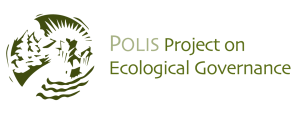
Piikanikoan, Ira Provost, is a member of the Piikani First Nation, from the Blackfoot Confederacy, in Southern Alberta, Canada. A Piikani Elder and Knowledge Holder, he is a Manager for Piikani Nation Consultation and Piikani Traditional Knowledge Services.
Ira holds a Master of Arts degree in Indigenous Studies from the University of Lethbridge, where he defended his thesis “Biocultural heritage: Meaningful Indigenous participation and consultation in land use” in 2020.
As Consultation Manager, Ira serves his people as an intermediary between external proponents (industry and government) and the Nation. He creates and facilitates meaningful relationships with proponents as part of land development on Piikani ancestral territory, and develops capacity for the protection of Piikani biocultural resources.
As Manager of Piikani Traditional Knowledge Services – Piikani Traditional Knowledge Society (a non-profit resource centre committed to the preservation and promotion of traditional knowledge and culture of Piikani people), Ira helps advance his people’s goals of preserving, enhancing, protecting and caring for the Piikani and Blackfoot culture, language, spirituality, songs, customs and history based on values of Wind, Land, Water, Sun, Plants and Animals. Ira supports cross-cultural programming around Southern Alberta-area educational institutions with a wide variety of lessons and lesson planning in all areas of First Nations, Métis and Inuit curricular support.
Ira has been musician in Alberta for over three decades writing, performing and producing various musical projects in multiple genres. His songs tell stories of gaining strength from culture and heritage by restoring identity in Indigenous people of all ages, everywhere. Ira has released two independent contemporary musical albums, Blackfoot Sky (2008) and EverMore (2014).
Ira is guest curator of Piikanikoan: Living under a Blackfoot Sky, an online exhibit at the Galt Museum. In his presentation, Ira explains the significance of his winter count (a physical record or calendar where, at specific periods and intervals of time, images were drawn upon a tanned animal hide) and discusses his songs that are featured in the exhibit.
Ira has been an essential Advisor, Mentor and Collaborator for several years in our POLIS Biocultural Ethics initiative. He has been a featured speaker in POLIS biocultural ethics webinars and is part of the Ethics Stewardship Circle developing new Ethical Guidance for Knowledge Sharing Across Indigenous and Western Scientific Knowledge Systems.


